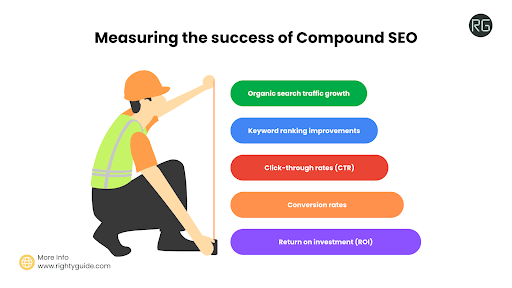The Future of SEO: What's Next for Search Engine Optimization
-
Abdul Wadood

Hey there fellow digital marketer. Have you been wondering what’s next for SEO and how you can stay ahead of the curve? Search engine optimization is an ever-changing field, and if you want to rank at the top, you need to keep up with the latest trends. As an SEO for over 10 years, I’ve seen algorithms and best practices come and go. But there are a few areas of SEO that are emerging and that you should pay attention to. Things like voice search, artificial intelligence, and semantic search are going to shape the future of SEO. In this article, I’ll break down what’s on the horizon for search engine optimization and give you actionable tips to prepare your strategy for what’s to come. The future of SEO is exciting, and if you implement these techniques now you’ll be ahead of your competition.
Table of Contents:
How Search Engines Have Evolved Over Time
Search engines have come a long way since the early days of the Internet. Back then, search engines were basic keyword matches. As long as your page had the search term on it, you had a shot at ranking.
How Search Engines Work Now
Today, search engines are sophisticated AI systems that analyze your content and determine how relevant and useful it is for searchers. Ranking factors now include:
- The overall quality and user experience of your page
- How authoritative and trustworthy your site is
- The freshness of your content
- How optimized your page is for the searcher’s query and intent
Search engines can understand context, synonyms, and even the intent behind search queries. They look at over 200 ranking factors to determine which pages to show searchers.
What This Means for SEO
Simply having relevant keywords on your page is no longer enough. To rank in today’s search engines, you need to focus on:
- Creating amazing content. High-quality, in-depth content that provides value to readers is the foundation of modern SEO.
- Earning high-quality backlinks. Get dofollow links from authoritative sites in your industry. Spammy link-building strategies no longer work.
- Optimizing for search intent. Make sure your content matches what people are actually looking for. Optimize your page for the searcher’s intent, not just the keywords.
- Improving your site’s authority. Build a reputable brand by publishing expert content, getting press mentions, and becoming an authority in your space.
- Optimizing for mobile and voice search. More searches are done on phones and voice assistants now, so your site and content must be optimized for these platforms.
The future of SEO is creating amazing experiences for searchers. By focusing on value, relevance, and authority, you’ll be poised to rank well in search engines for years to come. The specific tactics may change, but these core principles will drive search optimization into the future.
Emerging SEO Trends to Watch

SEO is constantly evolving, so to stay ahead of the curve, you need to keep an eye on the latest trends. Here are a few emerging areas to watch:
Content Creation
Creating high-quality, informative content is more important than ever. Focus on topics that genuinely help your audience, not just drive traffic. Written content like blog posts and videos are hugely valuable.
Voice Search
With the rise of voice assistants like Alexa and Siri, voice search is taking off. Optimize your content to rank well for voice queries by using natural language and long-tail keyword phrases.
Mobile-First
Most searches now happen on mobile devices. If your site isn’t optimized for mobile, you’re missing out. A fast loading, responsive design, and thumb-friendly content are must-haves.
Featured Snippets
Featured snippets are the summarized information, images, or lists that appear at the top of Google’s search results. To earn a featured snippet, create content that thoroughly answers common questions on your topic.
Link Building
While link building is an established practice, the methods are evolving. Focus on building high-quality links from authoritative, relevant sites. Consider guest blogging, influencer outreach, and competitor link analysis.
SEO may be constantly changing, but by staying on top of trends like these you can make sure your strategies are as innovative as possible. What works today may be outdated tomorrow, so keep learning and optimizing to build the best search experience for your customers. The future of SEO is bright as long as you’re willing to adapt.
The Impact of AI and Machine Learning on SEO
AI and machine learning are poised to significantly impact SEO in the coming years. As the capabilities of AI continue to advance, it will change how we optimize for search engines.
Automated content creation
AI can generate simple content like product descriptions, blog posts, and news articles. While AI-generated content may never match human-written work for creativity, it can take over time-consuming and repetitive SEO tasks. This could free up SEO professionals to focus on high-level strategy and content planning.
Personalized search results
Machine learning allows search engines to analyze user data and deliver personalized results based on location, search history, and interests. SEO strategies will need to account for personalization to rank well. Providing geo-targeted content, optimizing for user intent and query variations, and building audience personas become even more crucial.
Voice search optimization
As more people adopt voice assistants, voice search volumes are increasing. Voice search queries tend to be longer and more conversational than traditional text searches. Optimizing for voice search requires creating natural-sounding, long-form content that answers common questions thoroughly. Page titles, URLs, and meta descriptions also need to be optimized for voice search results.
Automated technical SEO
Tools that automatically analyze site speed, mobile-friendliness, broken links, keyword placement, and other technical SEO factors are emerging. These tools can identify issues and sometimes implement fixes with little human input. However, human strategic oversight and judgment are still essential to effective technical SEO. AI and machine learning augment the SEO’s role but do not replace it.
While AI and machine learning will significantly impact SEO, the human element remains vital. SEO professionals who embrace technology to automate repetitive tasks but also focus on strategy, content, and critical thinking will be poised for success. The future of SEO is humans and machines, working together.
Voice Search Optimization - The Next Frontier

Voice search optimization is an emerging trend that will shape the future of SEO. As more people adopt voice-activated assistants like Siri, Alexa, and Google Assistant, optimizing for voice search will become increasingly important.
Voice search behaves differently than traditional text-based search. People speak in a more conversational tone, using natural language. Queries tend to be longer, more complex, and contain pronouns like “I” or “me”. Ranking well in voice search requires optimizing for these differences.
To optimize for voice search:
- Focus on long-tail, conversational keywords, and phrases. Include synonyms and related terms that people might speak, like “how to” or “help me”.
- Prioritize featured snippets and quick answers. Voice assistants tend to favor concise, factual information they can quickly convey to the user. Optimize content to rank in featured snippets.
- Make content scannable. Use headings, bold text, bullet points, and numbered lists to highlight key information. This makes content easy to scan and extract answers from.
- Include pronouns and natural language. Write in a conversational tone as if speaking to the reader. Use pronouns like “you” and “your” to connect with the audience.
- Focus on intent and entity optimization. Voice search queries are often goal-oriented, trying to accomplish a task like “turn on the lights” or “play some music”. Optimize for different intents and entities to rank for these types of queries.
- Improve page load speed. Voice assistants have little patience for slow-loading pages. Fast load times, especially on mobile, are critical for ranking in voice search results.
Voice search opens up new opportunities for optimizing content and reaching more potential customers. While still an emerging area, optimizing for voice search will be key to staying ahead of changes in SEO and user behavior. The future is voice-activated, so make sure your SEO strategy is ready for it.
Creating Future-Proof SEO Strategies
To future-proof your SEO strategies, you need to stay on the cutting edge of search engine optimization trends and best practices. Focus on the following areas:
Creating mobile-optimized content
With more and more people searching on their phones, make sure your website and content are optimized for mobile devices. Use a responsive design that adapts to any screen size. Write content in a simple, scannable format with short paragraphs and sections.
Optimizing for voice search
Voice assistants like Siri and Alexa are changing how people search. Optimize for voice search by using natural language in your content. Write in a conversational tone using first and second person. Include transition words like “so,” “well,” and “because.” Keep sentences relatively short.
Prioritizing video content
Video is increasingly important for search rankings and engaging your audience. Create useful video content and publish it on your website and channels like YouTube. Optimize video content for search with compelling titles, tags, and video descriptions.
Building high-quality backlinks
While backlinks alone won’t rank your site, they are still a factor in search rankings. Focus on earning high-quality backlinks from authoritative sites in your industry. Guest blog, do interviews, create infographics, and pitch journalists to get natural backlinks to your content.
Monitoring your search rankings and making changes
Track how your content ranks for important keywords in search engines like Google. Make adjustments to your content and on-page SEO to improve rankings over time. Small tweaks to page titles, headings, and content can help raise your rankings and traffic.
Staying on top of search trends and optimizing your content and strategy will ensure you have a future-proof SEO approach. Make incremental improvements over time based on search engine algorithm updates and changes in user behavior. With an ever-evolving understanding of SEO best practices, you’ll be poised for success in the years to come.

Conclusion
So there you have it. The future of SEO is all about optimizing for voice search, visual search, and AI. The days of just stuffing keywords into your content and calling it a day are long gone. To rank in the new world of search, you need to focus on creating amazing experiences for real people. Write content that solves problems. Produce videos and images that educate and inspire. Build a brand that people know and trust. The next wave of search engine optimization is all about connecting with your audience on a human level. If you can do that, you’ll be in a great position to thrive in the future of SEO. The robots are getting smarter, but people will always crave knowledge, stories, and relationships. Focus on that, and your SEO success is all but guaranteed.
Abdul Wadood

